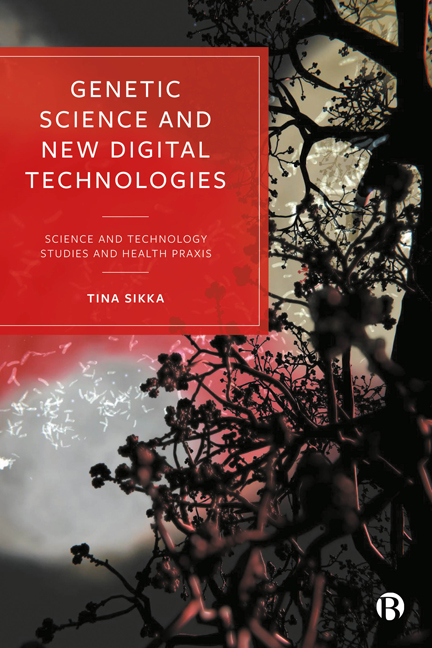Book contents
- Frontmatter
- Contents
- Notes on Contributors
- Introduction
- 1 Social and Behavioural Genomics and the Ethics of (In)Visibility
- 2 PureHealth: Feminist New Materialism, Posthuman Auto-Ethnography and Hegemonic Health Assemblages
- 3 Ambivalent Embodiment and HIV Treatment in South Africa
- 4 An ‘Artificial’ Concept as the Opposite of Human Dignity
- 5 Health Praxis in the Age of Artificial Intelligence: Diagnostics, Caregiving and Reimagining the Role(s) of Healthcare Practitioners
- 6 Digital Health Technological Advancements and Gender Dynamics in STS
- 7 Automation in Medical Imaging: Who Gets What AI Sees? Insights from the Adopters’ Perspective
- 8 Robots for Care: A Few Considerations from the Social Sciences
- 9 Are Ovulation Biosensors Feminist Technologies?
- Conclusion
- Index
3 - Ambivalent Embodiment and HIV Treatment in South Africa
Published online by Cambridge University Press: 28 March 2024
- Frontmatter
- Contents
- Notes on Contributors
- Introduction
- 1 Social and Behavioural Genomics and the Ethics of (In)Visibility
- 2 PureHealth: Feminist New Materialism, Posthuman Auto-Ethnography and Hegemonic Health Assemblages
- 3 Ambivalent Embodiment and HIV Treatment in South Africa
- 4 An ‘Artificial’ Concept as the Opposite of Human Dignity
- 5 Health Praxis in the Age of Artificial Intelligence: Diagnostics, Caregiving and Reimagining the Role(s) of Healthcare Practitioners
- 6 Digital Health Technological Advancements and Gender Dynamics in STS
- 7 Automation in Medical Imaging: Who Gets What AI Sees? Insights from the Adopters’ Perspective
- 8 Robots for Care: A Few Considerations from the Social Sciences
- 9 Are Ovulation Biosensors Feminist Technologies?
- Conclusion
- Index
Summary
‘It’s because we fought for ARVs together’: HIV as a site of ongoing struggle
Miriam and I had spent the morning waiting in queues in Site C – a clinic in Khayelitsha, South Africa – as Miriam went through a series of checkups. On this visit, the check-ups extended beyond the usual monthly blood pressure and weight checks and included more detailed tests to make sure that her HIV medicines were not having adverse effects on her body. Miriam, who had first learnt of her HIV status in 1999, was concerned that the medicines were having seriously negative effects on her body. According to Miriam, these effects – including chronic backache and weight gain – were not taken seriously by the nurses and doctors and, instead, felt she was being blamed for these conditions rather than supported in addressing them. On this visit, she had resolved to speak to the nurse and ‘finally be taken seriously’. In this conversation, the nurse had told Miriam that the biomedical markers of her health – her CD41 count, viral load and blood pressure – indicated that the medicines were ‘doing their job’, and Miriam was advised to go on a stringent diet. I had waited on the bench outside the nurse’s office and when Miriam came to pick me up she explained that although she was frustrated with the nurse’s dismissal of her side effects, she was not surprised. With this sense of resignation, we walked across the clinic to collect her HIV medicines. While waiting in the very long queue snaking out from the three pharmacy counters to the general waiting area of Miriam’s clinic, we spent most of our time chatting to the many ‘comrades’, as Miriam referred to them, who came up to greet her. When I commented on Miriam’s active social life in the clinic, and particularly in the pharmacy queue, she smiled and said, ‘Sana, it’s because we fought [for ARVs] together’.
This chapter explores the ways that ARVs (antiretrovirals) are perceived and embodied by people like Miriam who had fought for the South African government to provide this treatment through the public health system.
- Type
- Chapter
- Information
- Genetic Science and New Digital TechnologiesScience and Technology Studies and Health Praxis, pp. 53 - 80Publisher: Bristol University PressPrint publication year: 2023

